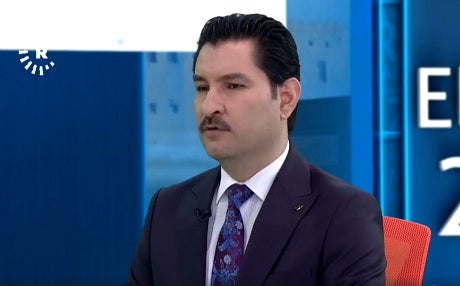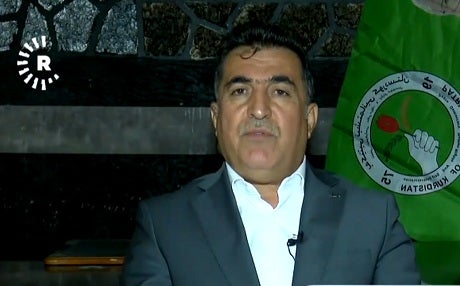During a debate on Rudaw TV, officials from the Kurdistan Democratic Party (KDP) and Patriotic Union of Kurdistan (PUK) each blamed the other for the situation in Kirkuk – now under Iraqi control after Peshmerga were forced out last fall.
Rawand Mala Mahmoud, deputy head of the PUK’s office in Kirkuk, said Kirkuk cannot take another call for independence right now.
“You have lost a lot, you can't come with an attractive slogan and lose what remains,” Mahmoud told Shakhawan Abdullah, a KDP member of the Iraqi parliament.
Mala Mahmoud said that the independence referendum, led by the KDP and championed by the head of the KDP Masoud Barzani, was the root cause behind the loss of Kirkuk.
After the Kurdistan Region and Kurdistani territories voted for independence from Iraq last September, Baghdad sought to exert federal control over the disputed territories, sending armed forces to take control.
The KDP has blamed the PUK for losing Kirkuk, a stronghold of the party, and handing it over to Baghdad. The party, which is largest in Kurdistan, is not fielding a candidate in Kirkuk, describing the city as “occupied” by Iraqi forces.
"Kirkuk's situation is not fit for elections. The people of Kirkuk are asking the political parties to normalize Kirkuk's situation instead of being busy with elections,” said Abdullah.

Shakhawan Abdullah, KDP member of the Iraqi parliament
He argued that the best card Kurds could play was to boycott elections in Kirkuk if the Peshmerga continue to be barred from the city or the situation is not normalized. He also claimed that 3,000 Hashd al-Shaabi militia members had entered Kirkuk over the past week to “manipulate the final electoral equation in Kirkuk.”
It would be a tragedy for Kurds to bring defeat upon themselves in Kirkuk he said, warning that they could lose seats. There are 13 parliamentary seats up for grabs in Kirkuk province. Kurdish parties won eight seats in the 2014 elections.

Rawand Mala Mahmoud, deputy head of the PUK’s office in Kirkuk
Mala Mahmoud, however, warned against losing Kurdish representation in the disputed territory.
"This election is a necessity for Kurds and it is required that not only PUK, but all the political parties and the Kurds in Kirkuk have to try to obtain their electoral entitlements with enthusiasm," he said.
Mala Mahmoud said that Kurds, Arabs, and everyone are free to vote as they wish, but the party has expressed concern about a low Kurdish turnout because of intimidation and displacement.
Aso Mamand, head of the PUK’s office in Kirkuk, acknowledged the problems Kurds are now facing in Kirkuk, “but this is temporary and we will move beyond it. I believe that the Kurdistanis of Kirkuk will tackle every plan and enmity.”
He argued that the people of Kirkuk understand the importance of electing Kurds to represent them in Baghdad and said every party should encourage their supporters to get out and vote.
"Whatever impediments, violations, and trespassing there are, we will tackle them. There has been some trespassing and we have filed lawsuits,” Mamand said.
Komal, Gorran, and Coalition for Democracy and Justice (CDJ) have formed the Homeland (Nishtiman) alliance in the disputed territories, while the PUK and Kurdistan Islamic Union (KIU) are running separate campaigns. The Kurdistan Islamic Movement (KIM) has joined the KDP in the boycott.




Comments
Rudaw moderates all comments submitted on our website. We welcome comments which are relevant to the article and encourage further discussion about the issues that matter to you. We also welcome constructive criticism about Rudaw.
To be approved for publication, however, your comments must meet our community guidelines.
We will not tolerate the following: profanity, threats, personal attacks, vulgarity, abuse (such as sexism, racism, homophobia or xenophobia), or commercial or personal promotion.
Comments that do not meet our guidelines will be rejected. Comments are not edited – they are either approved or rejected.
Post a comment